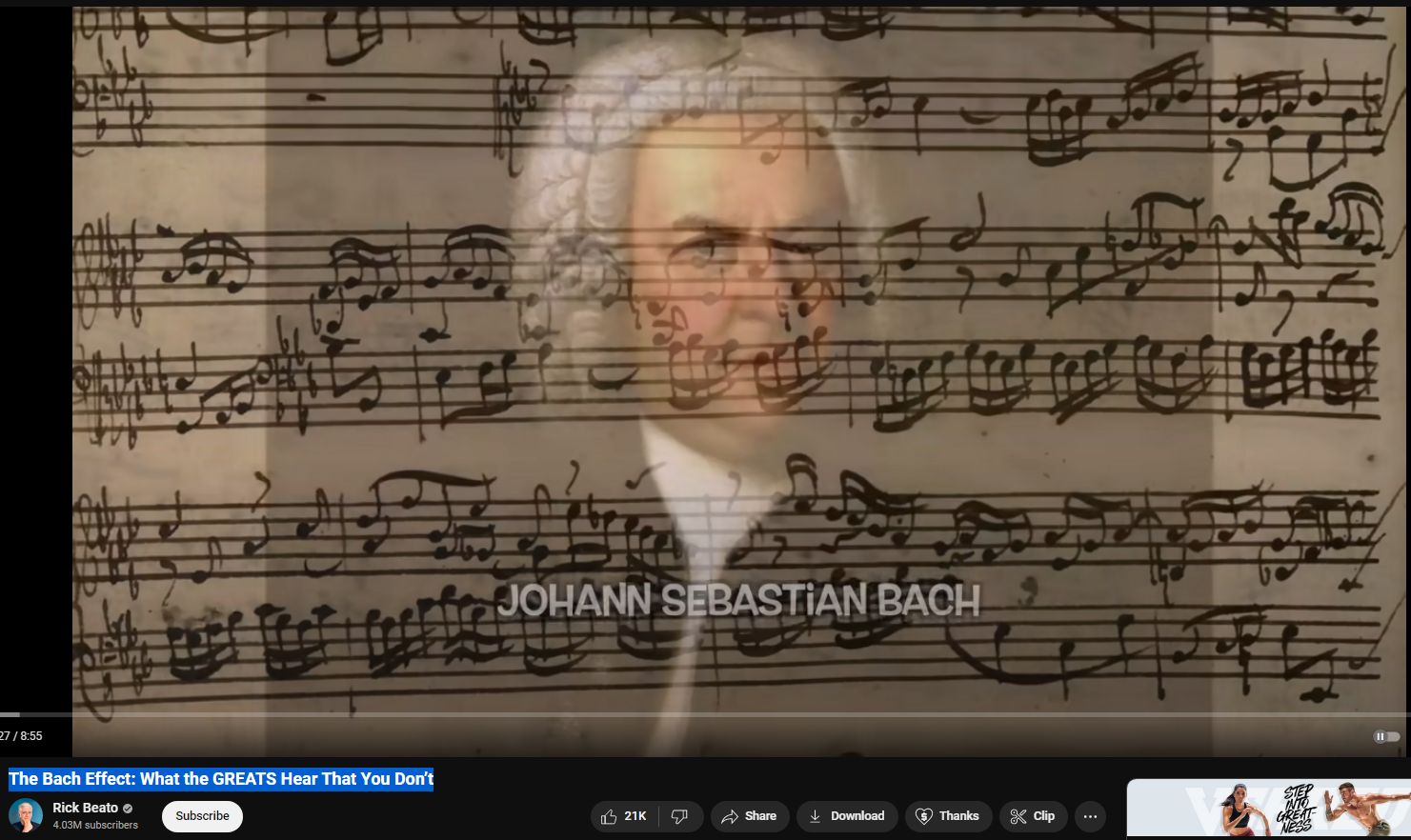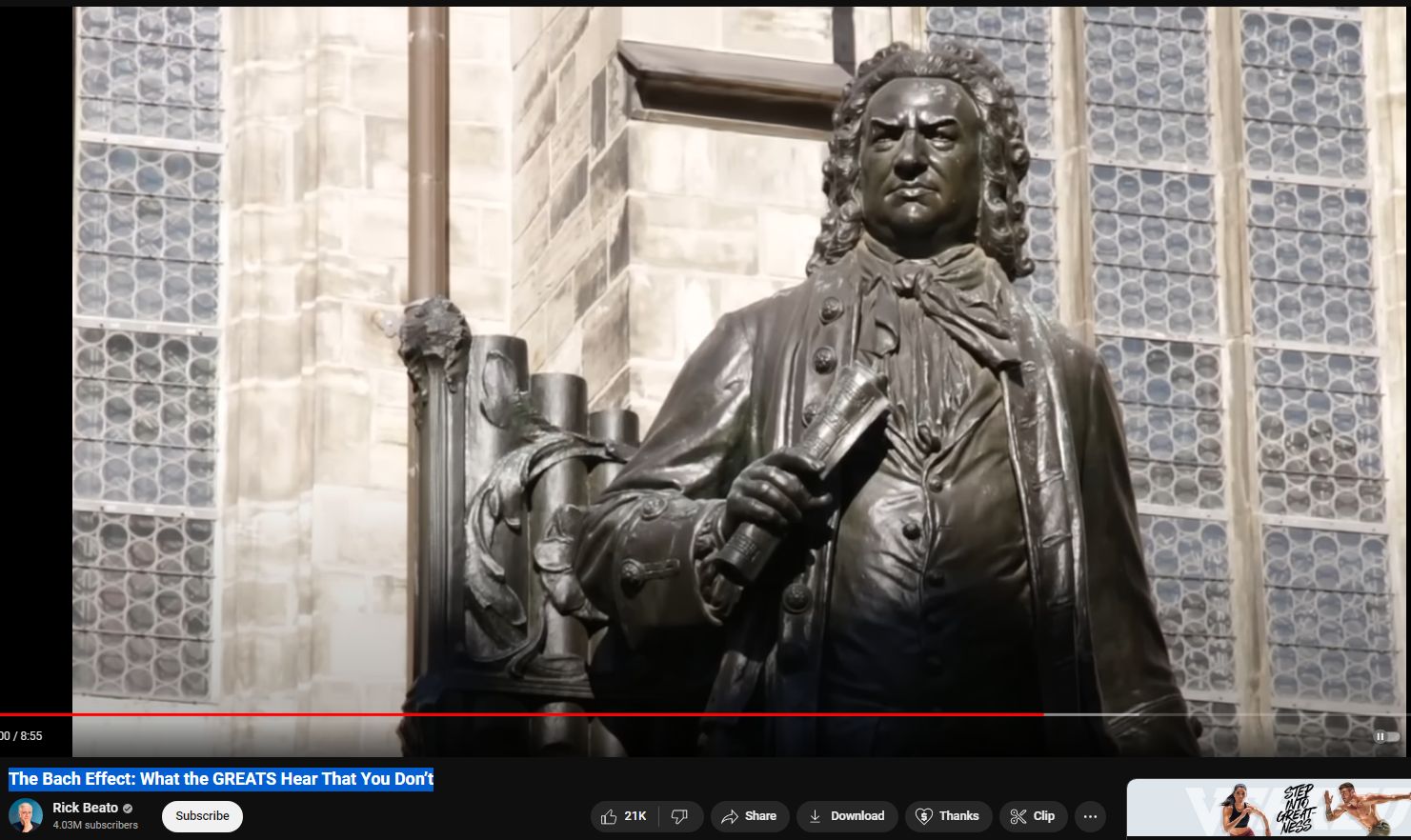The Bach Effect – Johann Sebastian Bach
Johann Sebastian Bach, a towering figure in classical music, profoundly influenced the baroque era and beyond. His compositions, characterized by complex counterpoint and harmonic innovations, set a high standard for musical complexity and emotional depth. Bach’s work in organ music, chorales, and fugues demonstrated his mastery of blending technical skill with expressiveness. His “Brandenburg Concertos” showcase his ability in orchestration, while his “Mass in B minor” and “St. Matthew Passion” reflect his profound religious devotion and understanding of vocal music. Bach’s legacy endures, influencing composers across generations and contributing foundational works to the Western classical music canon.
The Timeless Musical Legacy of Johann Sebastian Bach
Johann Sebastian Bach, a name that resonates through centuries of musical history, stands as one of the most influential composers of all time. Born in 1685 in Eisenach, Germany, Bach’s music transcends generations, continuing to inspire and captivate audiences worldwide. His profound impact on music is immeasurable, shaping the development of various genres and leaving an indelible mark on the classical music landscape. In this blog post, we delve into the musical importance of Johann Sebastian Bach and explore the enduring legacy of his works.
Pioneering Baroque Masterpieces
Bach’s contribution to Baroque music is unparalleled. His compositions exemplify the intricate polyphony and expressive depth characteristic of the Baroque era. One of his most significant contributions lies in the development of the fugue, a complex contrapuntal form where multiple voices interweave in a seamless musical dialogue. Pieces such as “The Well-Tempered Clavier” and “The Art of Fugue” showcase Bach’s mastery of this form, displaying his meticulous attention to detail and structural innovation.
Organ Music and Sacred Works
Bach’s organ music remains a cornerstone of the organ repertoire, showcasing his technical virtuosity and profound understanding of the instrument. Works like the “Toccata and Fugue in D minor” and the monumental “Passacaglia and Fugue in C minor” demonstrate Bach’s ability to create grand, majestic soundscapes that captivate listeners and convey deep emotional and spiritual themes.
Furthermore, Bach’s sacred vocal works, including the Mass in B minor, St. Matthew Passion, and St. John Passion, represent some of the most profound expressions of religious devotion in Western music. His meticulous attention to text setting, harmonic richness, and contrapuntal brilliance elevate these compositions to transcendent heights, leaving a lasting impact on listeners and performers alike.
Influence on Classical and Romantic Periods
Bach’s music continued to resonate long after his lifetime, influencing composers in subsequent eras. During the Classical period, composers such as Mozart and Beethoven admired Bach’s contrapuntal mastery and harmonic complexity, incorporating elements of his style into their own works. Beethoven famously remarked, “Bach is the immortal god of harmony.”
In the Romantic era, composers like Mendelssohn and Brahms played crucial roles in rediscovering and popularizing Bach’s music. Mendelssohn’s performance of Bach’s St. Matthew Passion in 1829 sparked a revival of interest in Bach’s works, leading to a renewed appreciation for his genius and a reevaluation of his legacy.
Legacy and Contemporary Relevance
Even in the modern era, Bach’s music continues to inspire musicians and audiences across genres. His compositions are staples of concert halls, churches, and recordings, with countless interpretations by orchestras, chamber ensembles, choirs, and soloists.
Moreover, Bach’s influence extends beyond classical music into popular culture. His themes and motifs have been reimagined and adapted in various musical styles, from jazz and rock to electronic music, showcasing the universality and timelessness of his musical ideas.
Conclusion: A Musical Titan for the Ages
In conclusion, Johann Sebastian Bach’s musical importance cannot be overstated. His pioneering contributions to Baroque music, mastery of the fugue and organ repertoire, profound sacred works, and enduring influence on subsequent musical periods solidify his status as a musical titan for the ages.
Bach’s music continues to enrich our lives, offering a window into the depth of human emotion, spirituality, and artistic expression. As we explore his vast repertoire and unravel the complexities of his compositions, we gain a deeper appreciation for the timeless legacy of Johann Sebastian Bach, a composer whose music will echo through the corridors of musical history for centuries to come.
“[Musical] composition is really about surprise.” – STING 0:30 in

Baroque era
